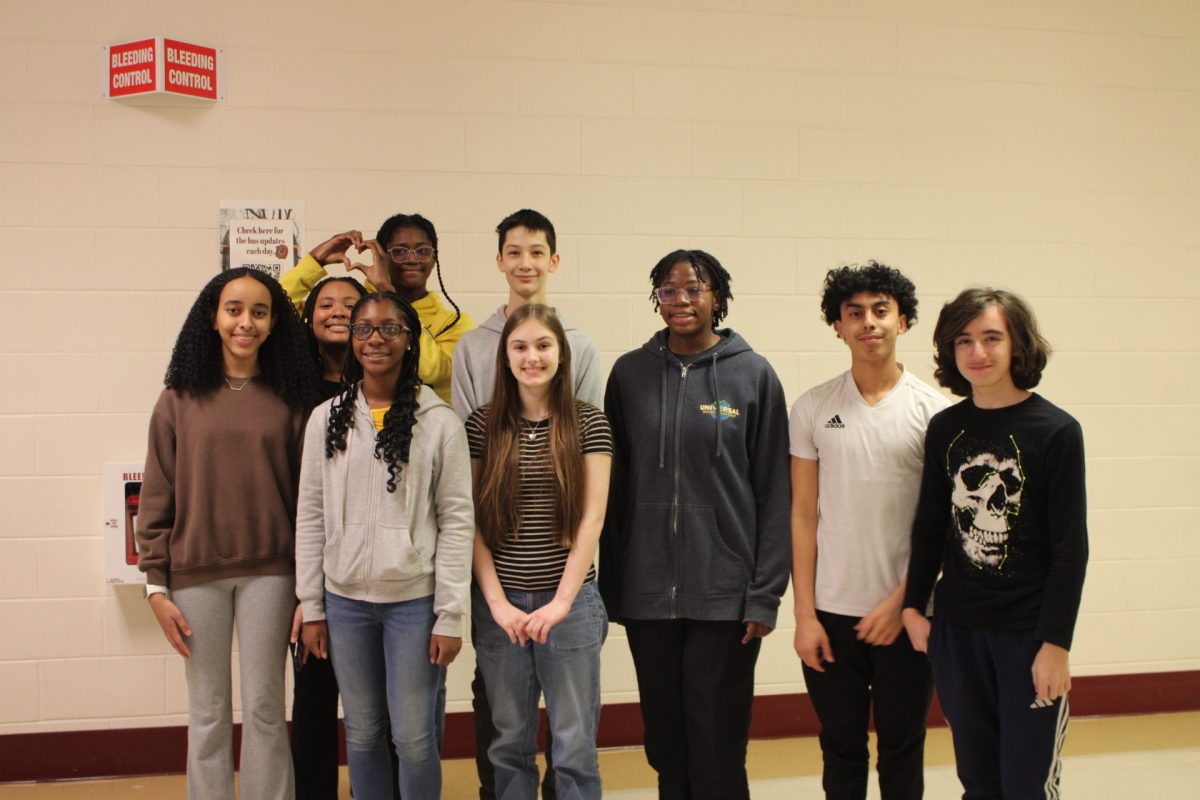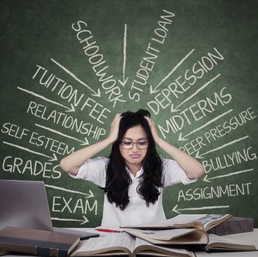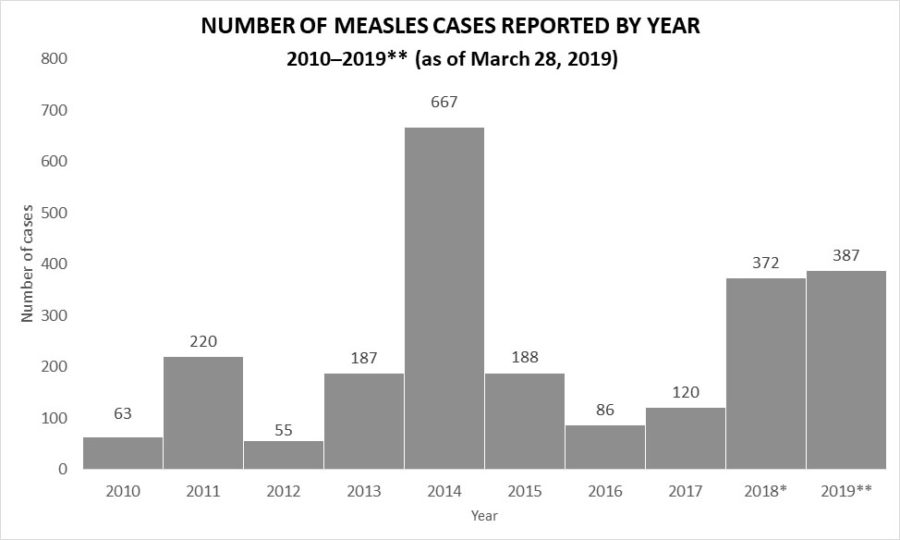The Vaccine Debate Why Parents Don’t and Why They Should
April 11, 2019
In 2018, the United States saw outbreaks of measles in California, Colorado, Connecticut, Georgia, Illinois, Kentucky, New York, Oregon, Texas, and Washington.
What is going on in these states?
These tragic outbreaks of measles, which can lead to pneumonia in one out of every twenty children infected with the virus, according to the Centers for Disease Control (CDC), can be attributed to the anti-vaccine movement. This is the movement that represents one among the World Health Organization’s ten major threats to global health in 2019, especially to individuals who have traveled out of the country unvaccinated.
But why are children not getting vaccinated?
Vaccines date back to the tenth century B.C. in China, where smallpox was treated. From that point forward, vaccines emerged around the world, and so did resistance against them. Governments saw the benefit in vaccinations, however, and mandates requiring the vaccination of all children were established by the 1800s, especially in England, to prevent any health crisis from occurring.
Not only were children under three months required to be vaccinated, but those who refused to have their infants vaccinated were penalized.
Jumping forward to today’s anti-vaccine movement, some resistance comes from those who oppose vaccinations on religious grounds, which is something that arose shortly after vaccinations first began. Today’s anti-vaxxers have delved much deeper into the biological arguments, thanks to several studies and advancements in science. The first modern study that began the recent biological movements against vaccinations began in the late 1990s by Dr. Andrew Wakefield.
In 1998, Dr. Wakefield, a former British doctor whose specialty was gastroenterology, conducted a study that falsely linked vaccines with the development of autism in children. TIME magazine called the study an example of “fraudulent science,” and although the theory has been debunked and Dr. Wakefield stripped of his medical license, the battle against mandatory vaccination of children continues. Despite the fraudulent study, resistors have continued to develop strong political arguments against vaccinations. The fight is not about health or science, but a debate over “collectivism” – prioritizing the group over the individual.
The anti-vaxxers’ argument basically addresses this question: How can the government force parents to give their children a one-size-fits-all vaccine when the risks for getting diseases are not equal genetically for all children? Anti-vaxxers have a politically understandable argument: Not vaccinating children is not only dangerous for the child, but it is selfish. When parents refuse the vaccination of their children, the health of their state, their country, and our world, is put at risk.
Some of the deadliest viral diseases include polio, hepatitis A and B, and measles. The United States has been polio-free for thirty years, but the CDC warns that all it takes to bring it back is one polio-infected person to travel into the US, as it is highly contagious. Hepatitis still is rare but present in the US, with about 3,000 cases a year. The measles had been eradicated from the US in 2000, but in 2014, the number of cases began to gradually increase.
The easiest way to protect children from contracting these very contagious viruses is to vaccinate them. Vaccines are highly effective. They have few or no side effects, help provide protection against diseases before children are exposed to them, and are always tested before they are administered. Although vaccines do not guarantee 100% protection from getting a disease, they provide a chance for the body’s immune system to gain immunity, and weaken the effects of the bacteria or virus on the body.
One important distinction that the CDC makes is that 100% of unvaccinated individuals exposed to a virus will contract the disease, whereas a very small percentage of vaccinated individuals who were exposed will actually contract the disease.
The chances of being infected speaks volumes as to why vaccines are always more helpful than harmful. Taking the risk of definitely getting sick if exposed to a virus is dangerous, and anti-vaxxers run that risk for their children every time they go out of the house and into the world.
All parents want the best for their children. Being vigilant and proactive with their health and immunity is the first step that can be taken, and vaccines provide the best protection that lasts throughout their lives.










































